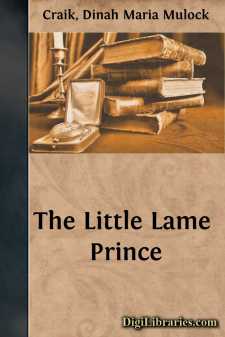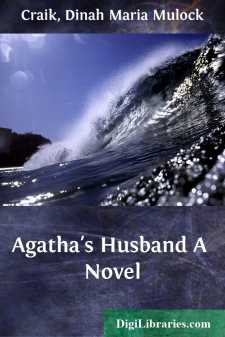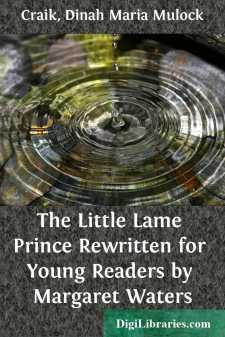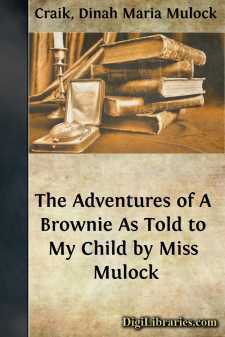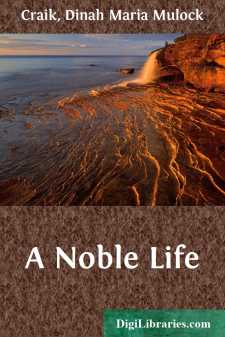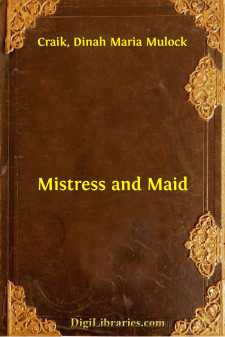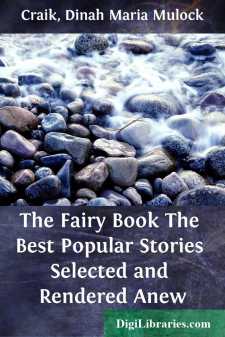Categories
- Antiques & Collectibles 13
- Architecture 36
- Art 48
- Bibles 22
- Biography & Autobiography 815
- Body, Mind & Spirit 144
- Business & Economics 28
- Children's Books 18
- Children's Fiction 14
- Computers 4
- Cooking 94
- Crafts & Hobbies 4
- Drama 346
- Education 58
- Family & Relationships 59
- Fiction 11834
- Games 19
- Gardening 17
- Health & Fitness 34
- History 1378
- House & Home 1
- Humor 147
- Juvenile Fiction 1873
- Juvenile Nonfiction 202
- Language Arts & Disciplines 89
- Law 16
- Literary Collections 686
- Literary Criticism 179
- Mathematics 13
- Medical 41
- Music 40
- Nature 179
- Non-Classifiable 1768
- Performing Arts 7
- Periodicals 1453
- Philosophy 65
- Photography 2
- Poetry 896
- Political Science 203
- Psychology 44
- Reference 154
- Religion 515
- Science 126
- Self-Help 85
- Social Science 83
- Sports & Recreation 34
- Study Aids 3
- Technology & Engineering 59
- Transportation 23
- Travel 463
- True Crime 29
Dinah Maria Mulock Craik
Dinah Maria Mulock Craik (1826–1887) was a notable English novelist and poet, best known for her novel "John Halifax, Gentleman" (1856), which depicts the rise of an orphan boy to prosperity and respectability through hard work and integrity. Her writing often explored themes of domesticity, female empowerment, and social issues, resonating with the Victorian readership. Craik's literary contributions extended to children's literature and poetry, making her a versatile and influential figure in 19th-century English literature.
Author's Books:
Sort by:
Chapter 1. "So I will do my best a gude wife to be, For Auld Robin Grey is vera kind to me." "I think this will do, my dear; just listen;" and in a mysterious half whisper, good Mrs. Ferguson, wife of James Ferguson, the well-to-do silversmith and jeweler, of High Street, Avonsbridge, read aloud from the sheet of paper in her hand: "'On the 21st instant, at the University...
more...
CHAPTER I Yes, he was the most beautiful Prince that ever was born. Of course, being a prince, people said this; but it was true besides. When he looked at the candle, his eyes had an expression of earnest inquiry quite startling in a new born baby. His nose—there was not much of it certainly, but what there was seemed an aquiline shape; his complexion was a charming, healthy purple; he was round and...
more...
CHAPTER I. —If there ever was a woman thoroughly like her name, it was Agatha Bowen. She was good, in the first place—right good at heart, though with a slight external roughness (like the sound of the g in her name), which took away all sentimentalism. Then the vowels—the three broad rich a's—which no one can pronounce with nimini-pimini closed lips—how thoroughly they answered to her...
more...
CHAPTER I. He was the most beautiful prince that ever was born. Being a prince, people said this; and it was true. When he looked at the candle, his eyes had an earnest expression quite startling in a new-born baby. His nose was aquiline; his complexion was healthy; he was round, fat, and straight-limbed—a splendid baby. His father and mother, King and Queen of Nomansland, and their subjects were...
more...
THERE was once a little Brownie, who lived—where do you think he lived? in a coal-cellar.Now a coal-cellar may seem a most curious place to choose to live in; but then a Brownie is a curious creature—a fairy, and yet not one of that sort of fairies who fly about on gossamer wings, and dance in the moonlight, and so on. He never dances; and as to wings, what use would they be to him in a coal-cellar?...
more...
Chapter 1 Many years ago, how many need not be recorded, there lived in his ancestral castle, in the far north of Scotland, the last Earl of Cairnforth. You will not find his name in "Lodge's Peerage," for, as I say, he was the last earl, and with him the title became extinct. It had been borne for centuries by many noble and gallant men, who had lived worthily or died bravely. But I think...
more...
CHAPTER I. She was a rather tall, awkward, and strongly-built girl of about fifteen. This was the first impression the "maid" gave to her "mistresses," the Misses Leaf, when she entered their kitchen, accompanied by her mother, a widow and washer-woman, by name Mrs. Hand. I must confess, when they saw the damsel, the ladies felt a certain twinge of doubt as to whether they had not been...
more...
SLEEPING BEAUTY IN THE WOOD. nce there was a royal couple who grieved excessively because they had no children. When at last, after long waiting, the queen presented her husband with a little daughter, his majesty showed his joy by giving a christening feast, so grand that the like of it was never known. He invited all the fairies in the land—there were seven altogether—to stand godmothers to the...
more...
CHAPTER I "Get out o' Mr. Fletcher's road, ye idle, lounging, little—" "Vagabond," I think the woman (Sally Watkins, once my nurse), was going to say, but she changed her mind. My father and I both glanced round, surprised at her unusual reticence of epithets: but when the lad addressed turned, fixed his eyes on each of us for a moment, and made way for us, we ceased to...
more...



